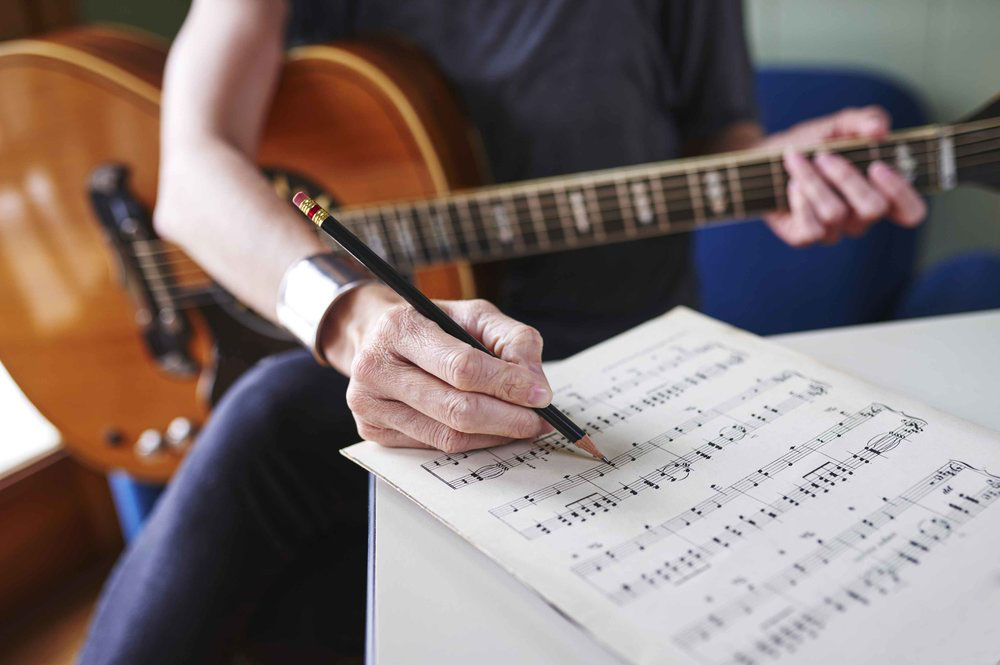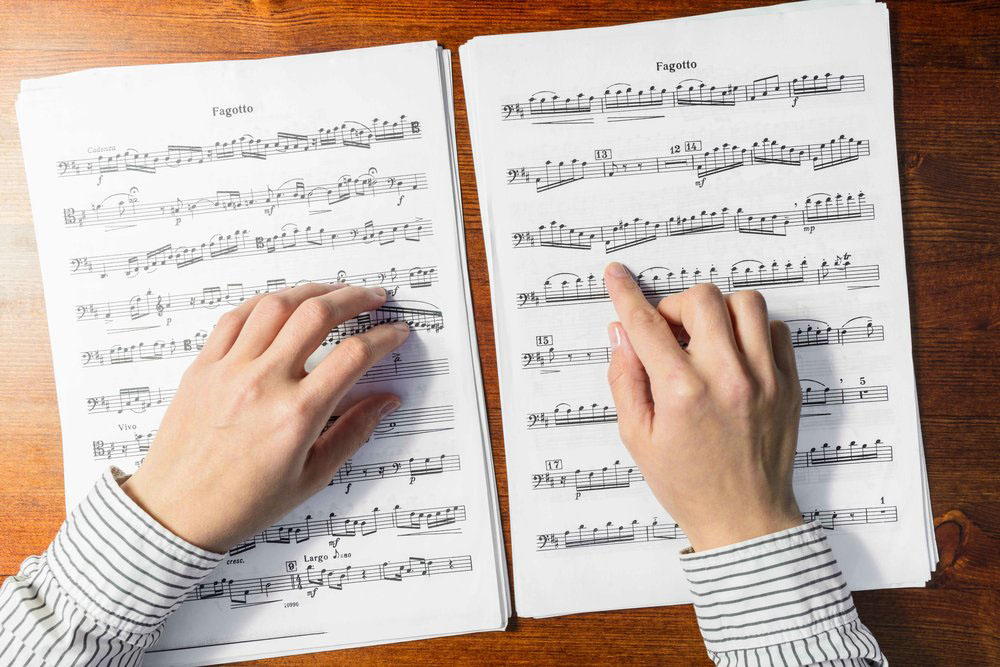2 Min Read
How To Nail Your Audition

We’ve all been there: you have an exciting upcoming audition, you think you’re prepared, but something goes wrong. Maybe you don’t get a good response from the judges, or maybe you forgot something crucial in your preparation. No matter how many auditions you’ve had, these helpful tips will prepare you for all future opportunities!
1. Be Prepared
Repeat after me: you can’t cram your musical skills. Start your preparation as early as possible. You cannot be too prepared. Here are some tips for ultimate preparation:
Practice often, and practice intelligently (see our 14 Practice tips here)
- Record yourself and analyse your performance. Listening to yourself play and sing can be a brutally eye-opening and painful experience. Do it anyway.
- Perform your audition music for friends and family
- Listen to your audition piece(s) daily. Make sure you are listening to the best possible performance recording available.
- Memorise your music, especially if memorisation is a requirement. If it’s not a requirement, the panel will appreciate your extra preparation.
- Make sure you are aware of all requirements. Are you required to bring copies of your music? Are you required to perform with accompaniment? What is the time limit of your audition?
- Start your preparation early. Do you have a dream audition you’re aiming to win in 2 years? Great. Maybe the music is still out of reach, and that’s fine. Use this time to build your skills and focus on the distant goal. Your teacher can help you by pinpointing your weaknesses and planning a long-term approach to helping you strengthen those weak areas.
Don’t practice until you’re just good enough… prepare to the point where you are the best and only option in the eyes of the judges
2. Choose the right music
Audition music usually comes in 2 forms: either you get to choose the music (within set parameters), or the music is chosen for you. If the music is chosen for you, yay! You’ve already completed this part and you don’t need to make any decisions. Unfortunately, everyone else will be performing the same piece as you. If you are performing the same music as everyone else, you’ll need to make sure you’re as prepared as possible, since the judges will have a very easy way to compare your skills to all the other candidates.
If you get to choose the music, great! You have an amazing opportunity to pick music that compliments your strengths well.
Ask yourself these questions while choosing your music:
- Does this music fit the requirements?
e.g. Does the audition call for one movement of a concerto but I am preparing a jazz standard?
- Does this music fit my playing level?
Is it too hard/too easy?
- Does this music compliment my strengths?
If you have an incredibly gorgeous high range, why would you choose a piece that only features your lowest notes? If double-tonguing is your #1 skill on the trumpet, choose a piece that features that skill.
- Does this music highlight my weaknesses?
Maybe you have a new favourite piece that you’re just dying to perform. Be honest with yourself: does it show off your weaknesses? If so, save the piece for the practice room until your skills catch up with the difficulties of the piece.
- Does this music fit the required time frame?
Many auditions will have time limits. If your audition doesn’t have a time limit, stay on the short side. Show your panel your very best skills and musicianship in a small window of time.
Think of it this way: the longer you play, the more likely you are to make a mistake. Plus, everyone appreciates brevity, especially when sitting through many hours of auditions. Leave the panel wanting more.
The right music can make or break your audition. Speak with your teacher or a colleague if you’re unsure about your audition music choice.
3. Dress appropriately and professionally
Dressing professionally can get you a long way. If you are auditioning for anything academic or professional, it’s especially important to dress your best for your performance. If you’re auditioning for American Idol or band chair placements at a 3-day summer camp, it’s not as urgent that you wear a dress or slacks and a tie. In all scenarios, you have the opportunity to show the panel that you are taking the audition seriously. If you are recording a video audition, consider that the judges don’t get the luxury of speaking with you to get their first impression. Their first subconscious impression of you (before they hear you perform) will generally be your appearance. Dress professionally, and make sure that your clothes are comfortable enough for performance.
4. Be Confident
Doesn’t this advice get old? It’s repeated ad nauseum for a reason; your confidence is infectious, exciting, and memorable. You don’t need to enter and be overly friendly and talkative to show confidence.
Here are some quick tips to help:
- Watch your posture
Slouchy posture and bad stage presence show the audience a lack of confidence.
- Make eye contact
Engage the audience and show them that you’re confident and enjoying making music.
- Speak clearly and calmly
Stammering, mumbling, or talking way too much can all show nerves and a lack of confidence.
- Show, don’t tell
If you’re feeling extremely confident, focus on doing your best. Don’t brag or act like a show-off; too much confidence leaves a sour impression.
5. Practice being Nervous
The only way to overcome debilitating nerves is to face them. Practice your performance for as many people as possible. The more you perform, the easier this will become. If you are nervous because you are unprepared, you will need to be more prepared before you will feel any better. Sorry, there’s no shortcut to preparation.
Also, nerves aren’t always a bad thing! Your nerves are creating a lot of energy in your body. Try to channel your nervous energy into positive performance energy. Whenever I feel shaky on stage, I focus on putting all of my nerves into my face, making myself come alive and sing with a lot of expression.
6. Know what you’re going to say
This situation happens about 200 times a day all across the world:
Judge: Hello, how are you?
Musician: ummmmmmmmmmmmmmmmm good
Judge: What’s your name?
Musician: ummmmmmmmmmmmmmmmmmmmmmmm Sarah
Judge: Great, what will you be playing for us today?
Musician: ummmmmmmmmmmmmmmmmmmmmmmmmmmm……
You get the picture.
Practice what you will say. Practice saying your name, polite responses, the title of your piece, the correct pronunciation of the composers/songwriters, etc.
Someday, you won’t need to practice what you’ll say. Until then, spend time perfecting your responses so they feel natural and confident.
7. Visualise
If you’ve prepared your music well enough, you have probably spent days with your music stuck in your head. You’ve also probably daydreamed about your audition, coating the experience with fear in your imagination. Do you ever think about your audition and picture yourself failing? Stop that. Stop that right now.
Close your eyes, and visualise your Best Case Scenario audition. You enter confidently and dressed professionally. You have your music in hand, or maybe it’s memorised. You can see the hall, the classroom, the video camera, or the office. You have a polite conversation with the judges where you flawlessly pronounce your pieces and their composers/songwriters. You perform – and it’s flawless. This is important: while you visualise your performance, visualise ALL of it. Hear every note of the performance, and “watch” yourself performing all the way until the very end. When you hear your performance, hear it played or sung with the most beautiful tone, crisp diction, clean articulation, and moving expression. Visualise yourself thanking the judges, leaving the room, and feeling great about your performance.
The first attempt of this visualisation might be challenging, but the more you visualise the same successful performance, the more likely you are to enter your audition with confidence and relentless positive focus. If you focus on all of the possible mistakes you could make, see yourself tripping, stuttering, fainting, etc., you will fear and feel those things during your performance. Why let those negative thoughts get in the way? Picture your dream audition consistently and you will make it happen.
8. Stay Healthy
Stay healthy. Be sure to get adequate sleep for the days leading up to your audition. Stay hydrated. Don’t try any new adventurous foods before your audition. If you get nervous, have some of your comfort foods nearby. (I always need Ritz crackers and a banana before I perform). Don’t drink alcohol the nights before your audition (especially if you’re underage). Set yourself up for success with what you consume. Performing music is a physical activity, and your body is depending on your care and love in order to function at its highest level.
9. Don’t Over-play/Over-sing
Take it easy! If you haven’t prepared enough, you might be tempted to practice a few extra hours the night before (or even the day of) your audition. Don’t go so hard that you injure, overwork, or strain yourself. Your panel will not care about your accuracy or speed if your voice is too strained to sing or if your lips are too sore to play.
9. Don’t Stress
Along the lines of staying healthy, don’t put too much stress on yourself for your audition. Certain kinds of stress can be extremely helpful when you are working towards an ambitious goal, but negative stress that causes anxiety, physical issues, or lack of sleep will not help you. Understand that if you’ve prepared to the best of your ability, then you have nothing to worry about. You might not get the result you want, but you’ll know that you’ve done your absolute best. Sometimes, audition results feel extremely unfair. And sometimes, they are! Understand that you are giving a stranger a snapshot of you; sometimes that brief snapshot isn’t your finest representation of what you can do. Sometimes it is, and the judge is just looking for something different.





